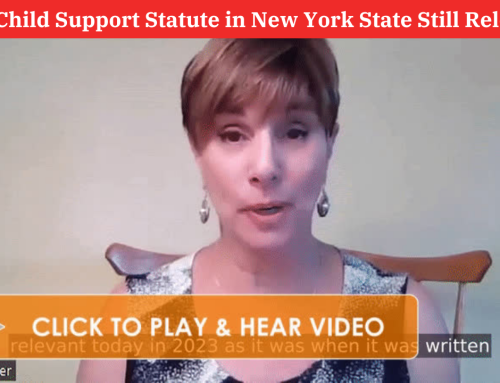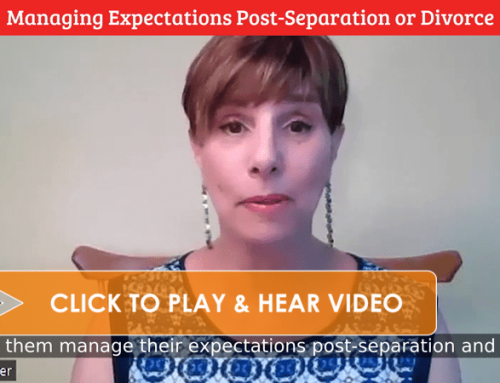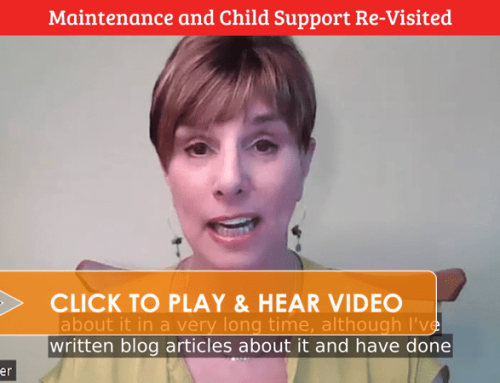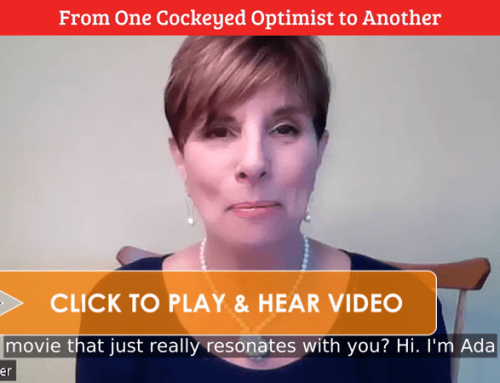 Strategize/don’t strategize – that is indeed a great question. There are those who take the “wait and see” attitude, and those who feel that putting some sort of action in place is better than not having a plan. I’ve noticed that when the seminal moments arrive (and a pending divorce or separation is certainly one of those moments), people sort of fall into one of these two camps. Which one are you?
Strategize/don’t strategize – that is indeed a great question. There are those who take the “wait and see” attitude, and those who feel that putting some sort of action in place is better than not having a plan. I’ve noticed that when the seminal moments arrive (and a pending divorce or separation is certainly one of those moments), people sort of fall into one of these two camps. Which one are you?
On the face of it, it would seem that the strategist has the clear advantage. After all, they have a plan of action, they chart a course and forward march. But keep in mind that NOT strategizing is also an action. Waiting for someone to make the first move, or waiting for something to happen before reacting/responding to those forces, IS an action and can be a strategy.
I know someone who falls in the latter category. His philosophy is that if you wait something out, sometimes you don’t have to do anything at all. Often times the situation will work itself out or even disappear without any effort on your part, so why put in the work, if in the end it wasn’t necessary? You just saved yourself the trouble.
Hmmmmm – sometimes it can work out that way.
But what if putting things off in the hope that it will disappear backfires? Now you have even more work to do because the situation is not of your choosing, and you are now forced into re-action rather than pro-action. Reaction can put you at a disadvantage because you are choosing only from the options offered, which can be draining and exhausting.
The other camp takes the opposite approach, which is to steer a course of action even given the little knowledge at hand. Although the charted course may change, at least there is an outline of a plan where adjustments can be made along the way. The thinking is that “at least they are doing something” which makes them feel more in control of the potential outcome.
There is no right way or wrong way to go about this. Your temperament and personal style will often dictate your preference for how you move forward when confronted with a seminal moment.
Mediation is not about right or wrong or winning or losing. It’s about finding consensus and having each party’s essential needs met. There is a prevailing “wisdom” that says he/she who shows their cards first, loses, but I’m not so sure that is always the case. With everyone putting their cards on the table and the transparency that this affords, it can actually help the mediation process rather than stymie it.
So whether you are a “take action” strategist or a “wait and see” strategist, ultimately everything comes together during the mediation with the ultimate goal of win-win.
Comments from Social Media
Well thought out. Interesting that I have always been the trend setter in all situations. Honestly nobody follows rules anymore. Why? Because “truth” is no longer valued in the legal system. It has been substituted by “capitalism”, politics, and even worse, “corruption”. I always take the leadership role keeping everyone in suspence. In mediation and arbitration you will always be a student or a teacher. I prefer exercising the wisdom to be the teacher. Great Ada!!!
Michael Covington
__________________________________________________
That was an enjoyable read. Thanks for posting.
Runako Mowatt
__________________________________________________
I have noticed that a threat of action does yield results – it makes time of the essence if you like – a use by date on your willingness to wait and see – the caveat is , if you make a threat of action , follow up with action or you will not be taken seriously – better to be taken at your word – not trying to be ‘tough guy’ trying get action / get progress / get paid / get something other than deafening silence
Michael Beirne
__________________________________________________
Thanks Ada, that is a great read and resources. I believe and practice both “take action” and “wait & see”. It really varies according to the specific variable we’re discussing. It’s valuable to structure an action or reaction when the result can be impactful. It’s strategic to sometimes “let things flow” and see how the relationship or the environment is shaping the possible outcome.
Rodney U Bellamy
- Does Child Support Have to be Paid? - April 17, 2024
- Is the Child Support Statute in New York State Still Relevant Today? (video) - April 2, 2024
- Managing Expectations Post-Separation or Divorce (video) - March 6, 2024






Leave A Comment